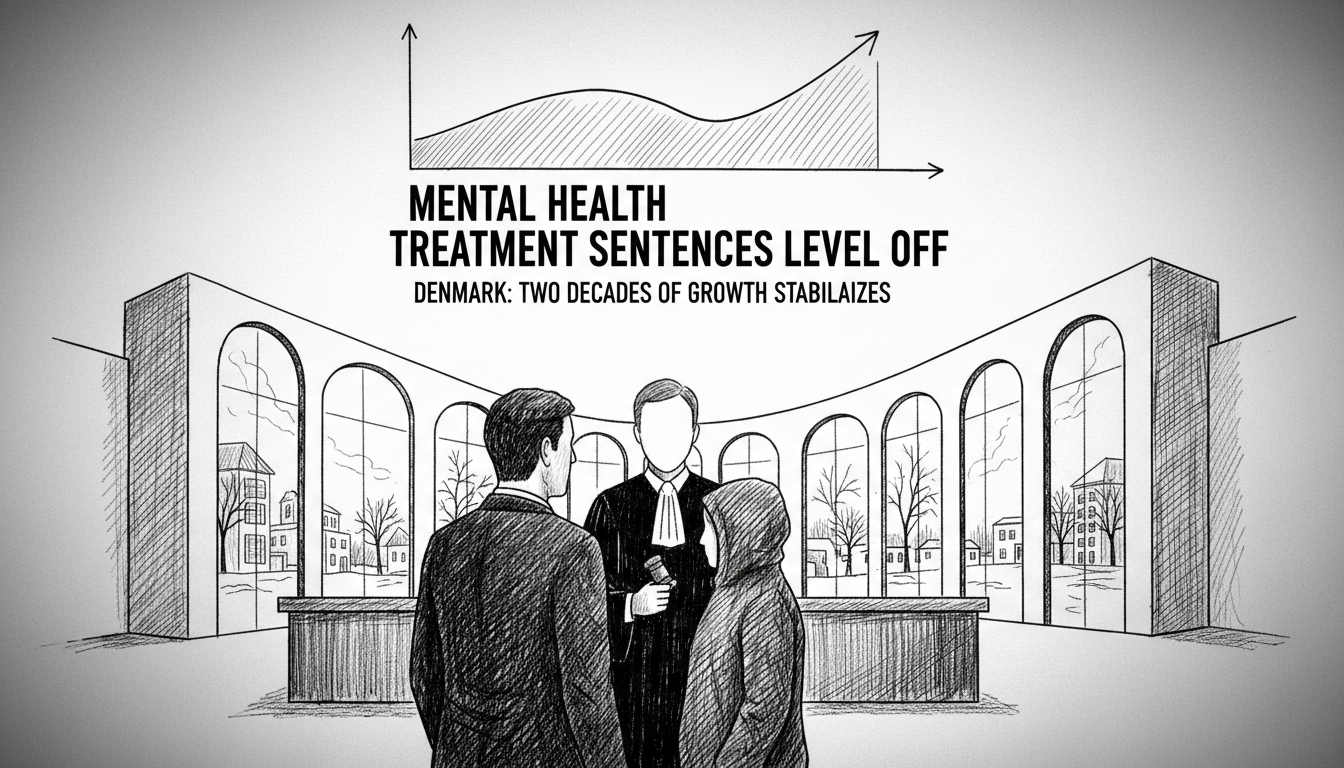For twenty years, Denmark saw a steady increase in court-ordered treatment sentences for people with mental health conditions. Now this trend shows signs of stabilizing. The curve appears to be flattening after two decades of consistent growth.
Court-mandated psychiatric treatment has become more common across the Danish justice system since the early 2000s. Judges increasingly sent offenders with diagnosed mental illnesses to treatment facilities rather than traditional prisons. This approach reflected changing attitudes toward mental health and criminal responsibility.
Danish legal experts note several factors driving this shift. Greater awareness of mental health issues played a role. So did improved diagnostic capabilities within the justice system. The trend also aligned with broader European moves toward rehabilitation over pure punishment.
The current stabilization suggests the system may have reached a natural equilibrium. It could indicate that courts now properly identify cases where treatment offers better outcomes than incarceration. The change might also reflect improved community mental health services preventing some offenses from occurring.
International readers should understand Denmark's unique approach to mental health and justice. The country combines universal healthcare with a progressive justice system. Treatment sentences typically involve secure psychiatric facilities rather than standard prisons. These facilities focus on rehabilitation alongside public safety.
What does this mean for Denmark's justice system? The leveling trend could signal maturity in how courts handle mental health cases. It might also reflect success in early intervention programs. Some experts suggest the healthcare system now catches more mental health issues before they lead to criminal behavior.
The data comes from comprehensive national statistics tracking court outcomes. Researchers analyzed sentences across all Danish courts over the twenty-year period. They focused specifically on rulings that included mandatory psychiatric treatment.
This development matters beyond Denmark's borders. Other Nordic countries watch Denmark's approach to mental health in the justice system. Sweden and Norway face similar challenges balancing treatment with public safety. Denmark's experience could inform policies across the region.
For expats and international observers, this story reveals important aspects of Nordic society. These countries prioritize rehabilitation and healthcare even within justice systems. The approach reflects broader social values about supporting vulnerable populations.
The stabilization trend raises questions about next steps. Will treatment sentences remain at current levels? Could better community services further reduce these numbers? The answers will shape Denmark's justice and healthcare systems for years to come.

